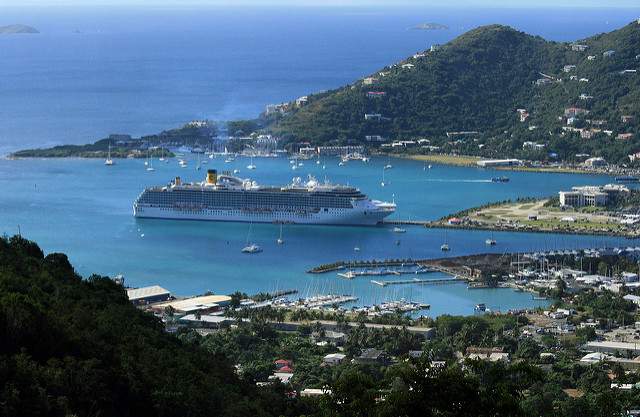
Spear’s and BVI Finance host Transparency and Trust at the Ritz to discuss choosing the right offshore structures and jurisdictions for HNWs
The panel discussion was chaired by Christopher Silvester, Consultant Editor of Spear’s, who introduced the three panelists below:
Gary Hales, Head of Business Development for BVI Finance, is responsible for promoting the BVI as a leading international finance centre. He joined the organisation last year from Jersey Finance, where he had been Business Development Director for over four years, with a particular focus on the Gulf Cooperation Council and India.
Ceris Gardner, a Senior Partner at Maurice Turnor Gardner, is an expert in the areas of tax, estate planning, family governance, charity law and philanthropy and immigration. She advises UK and non-UK domiciled and resident individuals, families, estates and trustees on UK and international tax and succession issues, establishing UK and offshore trusts, family limited partnerships and other cross-border, asset-holding structures.
Robert Briant, Partner and Head of the British Virgin Islands (BVI) office of Conyers Dill & Pearman, oversees the corporate and finance teams. Robert joined Conyers in 1994 and is considered one of the most senior corporate lawyers in the BVI. He focuses on mergers and acquisitions, joint venture companies and investment vehicles, and also provides specialist advice to hedge funds and private equity funds. Briant is a member of BVI Finance Limited’s Board of Directors, sits on the Securities, Investment Business and Mutual Funds Advisory Committee, and is also a member of the Joint Anti-Money Laundering and Terrorist Financing Advisory Committee of the BVI. He formed and currently chairs a consortium of the largest law firms in the BVI that makes recommendations to the government on issues affecting financial services in the BVI.
The panel started with Hales, who gave a general introduction. He explained that his appointment came at an important time, as BVI Finance made the transition to BVI Finance Limited in January 2017 – a new a public/private partnership and a private company that aims to better support financial services promotion and business development for the BVI.
As the chair, Silvester began the discussion by noting that whereas in the past offshore jurisdictions used to sell themselves by emphasising their secrecy, today, more often than not, they sell themselves by emphasising their transparency. How has this change come about, he asked Gardner, and what implications does it have for her clients?
To answer the question, Gardner explained that the loss of confidentiality through regulatory changes was a matter of major concern for her clients. In the UK, there is the threat of a trust regulator and a trust register open to the public and any trust that has tax implications will have to be on this register. She believed that the UK would be shooting itself in the foot if it went down that path. She also recognised that there is a big difference between being open to the authorities and being open to the prying eyes of journalists or criminals.
Briant followed up by saying that the BVI fully embraces transparency for tax, law enforcement and regulatory purposes.
Next, Silvester asked Gardner about the issue of trustee consolidation in offshore centres.
Gardner stated that the strength of the trustees is a key issue. The regulatory side is driving consolidation, which means there is less and less choice of trustee companies. Although this was not necessarily a bad thing, clients are not entirely comfortable that independent trust companies are being swallowed up by private equity, which to many people spells short-termism and increased fees.
Briant also said that there had been some consolidation in BVI, but not a lot – There are still over 1,000 licensed trust companies. The biggest, those owned by law firms, have been sold to PE companies, but there is still a large selection available.
Hales pointed out that trustee consolidation had been something of a problem in Jersey, where he had worked previously, but that it was not a problem in the BVI.
When clients are choosing jurisdiction for offshore investments, Silvester asked the panelists, what are the other factors that should concern them?
Gardner said that one factor is the number and choice of law firms, so that if anything does go wrong there are enough to be able to act for all the parties.
Briant pointed out that virtually every single offshore law firm has a presence in the BVI strengthened by their presence outside the BVI. When he moved to the BVI eighteen years ago, he had been only one of a handful of city lawyers in or outside the jurisdiction practising BVI law, whereas there are now hundreds.
Hales emphasised that the BVI is a jurisdiction of substance with proper depth of quality of people and firms on the islands.
Silvester asked how the BVI has responded to the pressures for greater transparency in recent years.
Briant said that the OECD, SATF and various NGOs in London have pressed the point, and that the BVI had responded by fully embracing transparency for law enforcement, tax and regulatory purposes, but not for public consumption or in breach of confidentiality. A positive is our Beneficial Ownership Secure Search system which we refer to as BOSSs, a database that the regulated trust companies are required to provide with UBO information., which law enforcement is able to obtain within minutes. He claimed that the BVI is leading the charge with their BOSS system, which is a more effective way to monitor UBOs than a public register system.
Hales added that he had been in London in early February and had spoken to Transparency International, the NGO, and also briefed a number of government ministers about BOSSs, because at the time the Criminal Finances Bill was going through Parliament. BOSSs had been very well received by both elements, seeing that it is a market-leading technological system that gets the balance right between transparency and confidentiality. It was done in conjunction with BDO BVI, BDO Canada, and also in partnership with Microsoft.
Silvester next asked how aspirants go about exploring the possibility of establishing a trust in the BVI.
Hales explained that BVI Finance had been set up as an independent public/private company in January and that fellow panelist Briant is on the board. Its purpose is to promote and market BVI’s financial services industry. Over time as it builds up the brand, advisers such as Gardner will most likely contact BVI Finance for referrals and introductions.
Gardner said that what happens typically is that clients go to her and she looks into what sort of jurisdictions might suit their particular offshore structure. Sometimes they have already got lawyers or a trust company in mind, possibly recommended by their private bankers. If not, she would look to her current contacts, such as Conyers Dill or others.
Silvester then asked what the advantages were of choosing the BVI over other jurisdictions.
Briant said that the BVI is by far the leading offshore incorporation jurisdiction, with over 420,000 active business companies (paying their annual government fee) and 2 million incorporations over the last two decades or so. The reason for that, he explained, is that in the early 1980s it was decided to look to Delaware for the BVI’s incorporation statute. Jersey looked to the 1948 UK Companies Act, which has a lot of antiquated features such as financial assistance, par value, etc. BVI looked to Delaware, the leading incorporation jurisdiction in the US and has an extremely efficient incorporation product, no par value, no financial assistance, no capital requirement even, but a simple solvency test. It was also cost-effective since it only charged a $250 annual government fee.
Without doubt, said Gardner, the BVI is famous for its speed of incorporation. Every client she came across had at least one BVI company if not several in its arsenal, if they came with a ready-made structure. She further stated that she is keen to promote what is happening on the trust side.
Hales emphasized that the BVI has a proud history when it comes to innovation. The Limited Partnership Bill is going through at the moment. BVI is innovative, regulatory-friendly, flexible, trying to stay ahead of the times, assisting incubator and approved funds, for example, and passionate about product development.
Briant said that he finds the BVI inspiring in this regard. In other Caribbean jurisdictions the competition between the law firms is fierce. In Cayman, Maples draft most of the legislation and Conyers Dill does the same in Bermuda. In the BVI, because it is such a new jurisdiction from a transactional point of view, they have set up a committee of all the corporate lawyers to work with government and the regulator to create the Limited Partnership Act, the BVI Business Companies Act, etc. They prefer to discuss what’s best for the betterment of the jurisdiction.
Finally, Silvester asked if there had been any crises.
For Robert Briant, the obvious crisis was the Panama Papers (in 2016), which highlighted the need for enforcement. Most of the references to the BVI jurisdiction arising from the Panama Papers were historical or had involved one law firm/trust company that had not always adhered to the spirit of regulation. The crisis caused the regulator to focus on the large incorporators and the offending law firm/trust company was fined within the BVI. He stated that they have passed that crisis and are better for it and entire jurisdiction is determined to do things in the right way. For people who want to avoid transparency, even for criminal, tax, and regulatory purposes, BVI is not the right jurisdiction.






